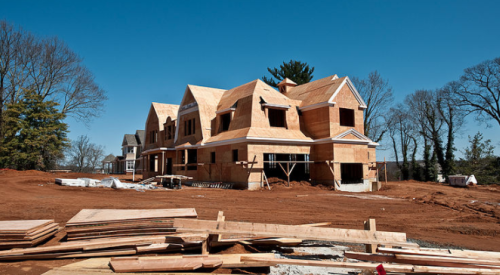| Dean Horowitz, Publisher |
Our parent company recently ushered in a performance evaluation workbook via a mass management presentation. One of the new areas by which to judge a staff member is quality of work. Like always, our team disrupted the presentation. "How can we judge someone on quality of work if you do not provide a concrete definition of what quality work is?"
"You know quality when you see it," was the instructor’s response.
"Is quality defined as an assignment delivered on time? Is it one that is acceptable by our peers because what they find acceptable is not even close to our standards?"
"You know what quality is, move on," was the response, perhaps the only one possible.
Quality is something we all know, but how many of us have realized its existence as a driver in the performance of our organizations? How do we communicate it to those who work with us so they will grasp its absolute necessity? How do we explain quality expectations without sounding like we are setting ourselves up as the only performance judges?
Discussions about quality predate the ancient Greek philosophers and will continue past our limited days on earth. My introduction to this discourse occurred in high school when a group of us read Zen and the Art of Motorcycle Maintenance by Robert Pirsig. It challenged us to explore the meaning of good, the tie between technology and analysis and metaphysical exploration. It was an introduction to a way of thinking and the first step on the path to obsessive behavior that means today I can’t let good enough be the goal.
In the construction process, with people and components coming together from all over, the path to "quality construction" frankly seems near impossible. The crazy thing is that so many builders are delivering quality products today through clear performance standards and solid work-force communication. The crazier thing is that many of your peers believe that soon quality construction will no longer be a market advantage but a given.
For the upcoming Benchmark conference in Chicago, we convinced Mark Hodges of K. Hovnanian Co. to lead us through a dialogue on achieving construction quality through performance standards and processes. Mark was the highest-scoring speaker at last year’s Benchmark when he did an unaided one-hour talk about framing issues his company had faced a couple of years ago. It was an incredible monologue that was honest, moving and human. He was so good that we asked him to take this year’s conference attendees down the road to achieving zero defects in our homes. Mark has accepted the challenge. I am very much looking forward to his segment.
The personal problem here is that the desire for quality goes well beyond just construction issues. Once you get your first taste of quality, you hunger for it in every aspect of your life. It is impossible to perform and preach quality at work only to go home and not have a quality marriage or relationship with your children. Once quality has been achieved in one thing you do, you feel like you have betrayed its very existence if you do not push for it in everything you experience.
We push those around us who can grasp quality to realize their potential, and we give up on those who don’t seem to care. The beaten-up feel they have too much of the burden, and the ones left to themselves wonder why they are outsiders. The struggle to bring all teammates into quality process thinking will instill the same hunger you possess. It will ultimately mean standards that are self-determined and process-driven instead of externally enforced.
The investment delivers a team whose goals are based on competing to achieve quality standards instead of just winning against a competitor. Competitors are temporary, quality is not.












